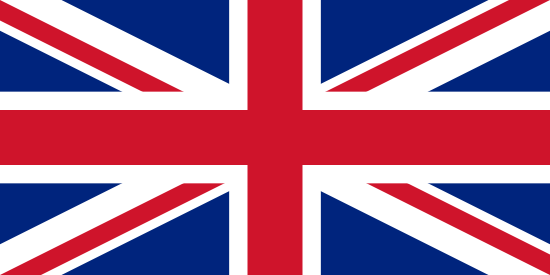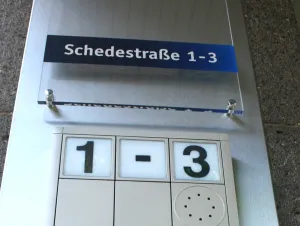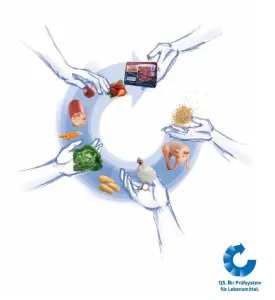QS. The quality scheme for food you can trust.
QS. Quality scheme for food provides quality assurance from farm to shop. With clear requirements and independent inspections, QS Qualität und Sicherheit GmbH or QS
actively reenforces the relationship between suppliers and customers, because everyone can depend on everyone.
As an industry-funded initiative, we bring all the involved parties together and cooperate to develop sector-wide solutions to ensure modern quality assurance.
Thorough - reliable - proactive - trustworthy
We ensure that the QS scheme participants comply with clearly defined and coordinated standards. We compile all requirements for our scheme participants in practice-oriented guidelines, checklists and supporting documents. Take advantage of this service and download the documents free of charge from our document centre. The inspections to determine whether and how the requirements are met are carried out by qualified auditors from independent certification bodies.
The blue QS certification mark is used to label products that have undergone these comprehensive inspections. The certification mark is therefore a symbol for food you can trust.
Milestones reached
Founded at the ANUGA fair 2001, food products which are labelled with the QS certification mark are now available in over 23,000 food retail outlets. The adjacent timeline shows the most important events and milestones since the founding of the QS scheme.

Foundation of QS Qualität und Sicherheit GmbH
On 13 October 2001, representatives from all of meat production stages meet to sign the shareholders agreement of QS Qualität und Sicherheit GmbH.
Pictured left to right: Dr. Rolf Meyer, Deutscher Raiffeisenverband e. V. (German Raiffeisen Association), Thomas Vogelsang, Bundesverband der Deutschen Fleischwarenindustrie e.V. (Federal Association of the German Meat Industry), Peter Zühlsdorff, chairman of the shareholders meeting and the Handelsvereinigung für Marktwirtschaft (Action Group for the Market Economy in German Retailing), Dr. Klaus-Dieter Baehrfeld, Verband der Fleischwirtschaft e.V. (Association of the Meat Industry), sitting in front on the left side Jörn Johann Dwehus, Centrale Marketing-Gesellschaft der deutschen Agrarwirtschaft mbH (German marketing agency for agricultural products) und Dr. Helmut Born, Deutscher Bauernverband e. V. (German Farmers` Federation).

First scheme agreement
Just a few months after the foundation of QS at the end of 2001, the first agreement with a scheme participant is signed in February 2002. Westfleisch e. G. is the first contractual partner of QS. The first QS audit is carried out in a pig production business. Having been audited succesfully, this business participates in the QS scheme via the coordinator Westfleisch. It was was followed by around 93.000 further agricultural businesses that are taking part in the QS scheme via a coordinator today.

First products with QS certification mark in food retail
From farm to shop
: In September 2002, less than one year after the foundation of the QS scheme, the first meat products labelled with the QS certification mark are commercially available. Nowadays, more than 23.000 food retail branches sell products labelled with the QS certification mark.
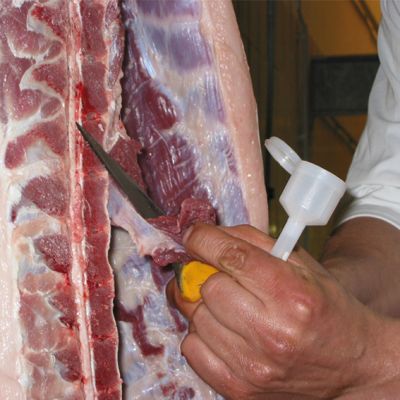
Start of the QS salmonella programme
Animal welfare and hygiene are important issues within the QS scheme. In order to effectively address the risk of salmonella, pig production businesses in the QS scheme are obliged to participate in the close-knit monitoring of salmonella since April 2003. A measure that has proven successful: the number of salmonella infections in humans and animals could be reduced considerably since than. Almost 10 million samples have been taken, analysed and recorded within the database of the QS scheme since the introduction of the salmonella programme.

Incident and crisis management is set up
To further protect scheme participants and, at the end of the chain, consumers, QS set up an incident and crisis management. It obliges all scheme participants to report every incident directly to QS that is considered critical. QS thus has the possibility to quickly respond to incidents, to support the business concerned in problem solving and to ensure food safety – also by blocking a scheme participant, if necessary.
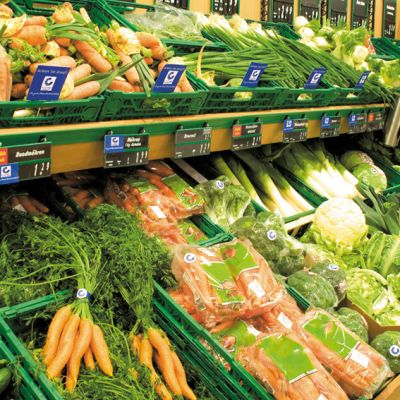
Foundation of QS Fachgesellschaft Obst-Gemüse-Kartoffeln GmbH
Having successfully established the QS scheme in meat sector, there are growing calls for a similar quality assurance for fruit and vegetables – the QS Fachgesellschaft Obst-Gemüse-Kartoffeln GmbH is founded in February 2004. From then on producers, wholesalers and food retailers in the fruit and vegetable sector can decide for quality assurance with the QS certification mark, too.
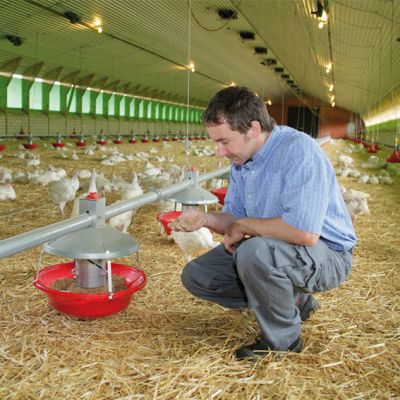
Foundation of QS Fachgesellschaft Geflügel GmbH
In order to provide a better response to the special demands of the poultry industry, the QS Fachgesellschaft Geflügel GmbH is founded in June 2004. As previously in the red meat sector and for fruit and vegetables, the QS scheme establishes itself quickly.
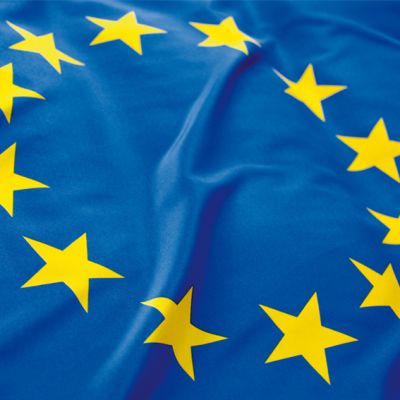
Europa und Internationales
Because of its steady growth, the QS scheme becomes increasingly important for quality assurance even on international level. In order to allow an unimpeded flow of goods with comparable quality assurance, QS promotes transnational cooperation on various levels. Important milestones are:
- In October 2004 the European Meat Alliance (EMA) is founded to allow a cross-scheme goods traffic by means of mutual recognitions:
- Since January 2005 it is possible to conduct combined IFS/QS audits. This means, that the International Food Standard (IFS) and QS requirements for food retail and wholesale can be assessed together in one audit by independent certification bodies.
- From January to March 2005, mutual recognitions with several standards in Europe can be concluded: with the QSG standard in Denmark, the Certus and the GMP standards in Belgium as well as with the standards IKB and GMP+ in the Netherlands.
- Since September 2006, the QS-GAP standard allows mutual recognition between QS and GlobalG.A.P. (at that time still EUREPGAP). From then on, producers of fruit, vegetables and potatoes may deliver their goods into the respective other scheme.
- QS currently possesses mutual recognitions with a total of 13 standard owners.
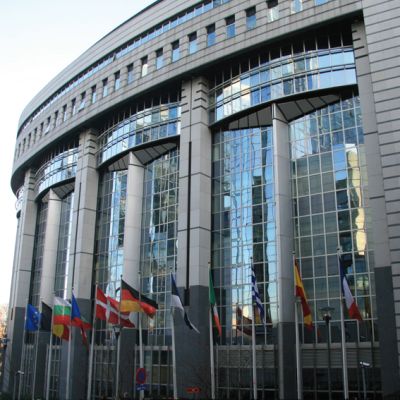
EU regulation 178/2002 comes into force
In January 2005 the EU regulation 178/2002 comes into force. The demands set out with regard to self-assessment and traceability are key requirements in the QS scheme. Economic operators are responsible for food safety and use the QS scheme for consistent implementation and documentation.
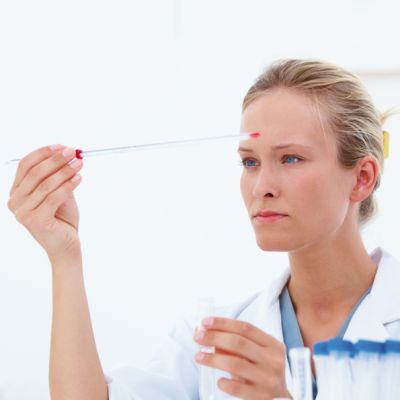
Start of residue monitoring for fruit and vegetables
With introducing the residue monitoring for fruit, vegetables and potatoes in March 2005, QS establishes an effective system of regular product controls on all stages of the supply chain. The efficiency of this instrument is shown by the considerably lower residue levels in various products. Since August 2006 QS also evaluates the work of laboratories: only those who successfully pass a laboratory performance assessments once a year are allowed to perform analyses in the QS scheme.
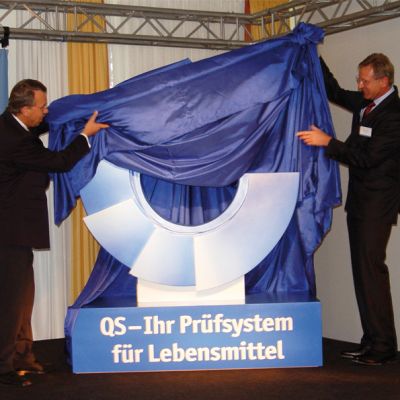
Change of QS certification mark
The QS certification mark got a makeover. The result, the stage symbol
which is still used today, is presented in October 2005: the arrow with five steps represents the cross-stage inspection of foodstuffs from farm to shop
.
The picture illustrates the first presentation of the new certification mark by Professor Stefan Feuerstein (right), chairman of the QS shareholders meeting and board member of the Metro AG, who unveils the new certification mark together with Franz-Josef Möllers (left), president of Westphalia-Lippe Agricultural Association and chairman of the advisory board for beef, veal and pork.
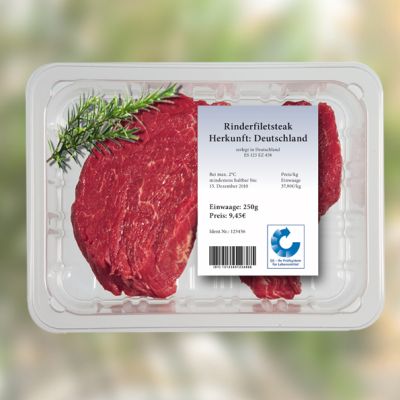
First meat with QS certification mark in self-service counters of the food discount
After the service counter, meat labelled with the QS certification mark also conquers self-service counters and can be purchased in the food discount for the first time in February 2006. This marks an important step for scheme participants as it shows that retail puts increasingly trust in quality assurance with the QS certification mark.
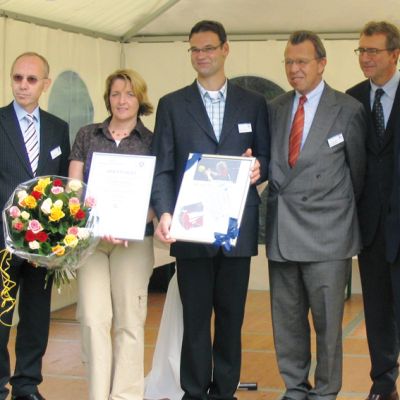
100.000th scheme participant
With handing out the QS certificate to the pig producer Engelbert van Bevern in Muenster on 5th September 2007, QS welcomes the 100.000th scheme participant in the supply chain meat and meat products.
Pictured from left to right: Dr. Alfons Rensing, managing director of the certification body ACG Agrar-Control GmbH, Mr. and Mrs. van Bevern, Franz-Josef Möllers, president of Westphalia-Lippe Agricultural Association and chairman of the advisory board for beef, veal and pork and Dr. Hermann-Josef Nienhoff, managing director of QS.
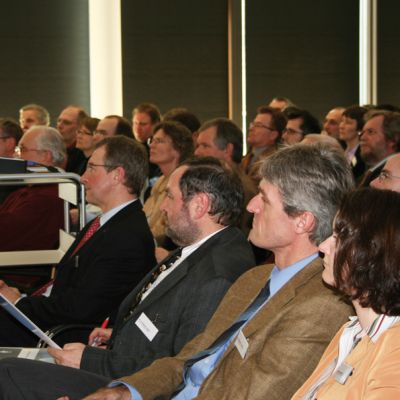
Coordination platform on piglet castration takes up work
Expert workshop confirms great need of action and research: The question of how to completely renounce piglet castration in the long run was discussed by more than 130 experts and speakers from science, industry and animal welfare organisations on the occasion of an expert workshop held by QS and Deutschen Gesellschaft für Züchtungskunde e.V. (German Society for Animal Production) on 9th March 2009 in Kassel. The workshop was the debut event of the QS Coordination platform Renouncing piglet castration
. Although the common objective, the complete elimination of piglet castration, is clearly defined, it becomes obvious that clarification is still needed when it comes to practical implementation.
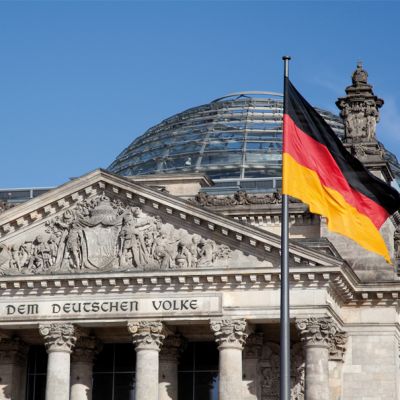
Federal politics relies on cross-stage quality assurance
In their coalition statement, the newly elected government consisting of CDU and FDP promotes the expansion of privately organized cross-stage quality assurance schemes and their interlocking with the state food control
. It thereby gives a boost to the cross-stage system which forms the basis for the work of QS.
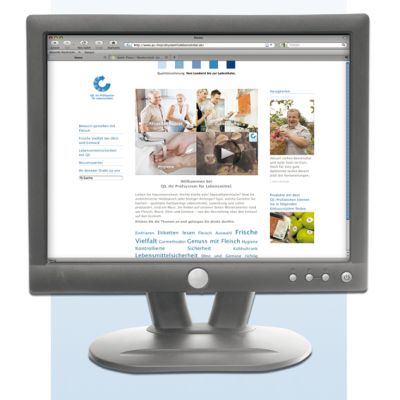
Launch of consumer webiste
Until 2009, the CMA (German marketing agency for agricultural products) was responsible for advertising and public relations on the subject of the QS certification mark. With the liquidation of the CMA and its departure as shareholder at the beginning of 2009, a gap appeared in terms of consumer communication. This gap could be filled to some extent with the new consumer portal www.qs-pruefsystem.de. Here, consumers get useful information on the QS certification mark, quality assurance in the different stages of food production and product knowledge – for the proper handling of products they bought.
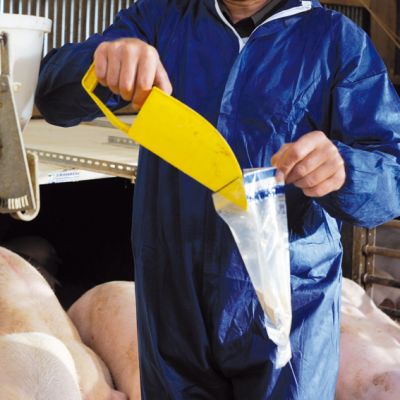
First consequences of the dioxin incident
As a consequence of the dioxin incident at the beginning of 2011, QS tightens the requirements in the feed sector. The QS scheme, as a dynamic organisation, reacts quickly and concertedly in several adjustment steps: by 1 March and 1 July tightened requirements were adopted, further adaptations shall follow with the revision which will come into effect on 1 January 2012. The adopted measures will further increase feed security and assure that products can be traced back even faster.

QS communicates in social networks
Since Mai 2011 QS is active on Twitter. Short messages with a maximum length of 140 characters (so called tweets
) offer information for interested experts. On the occasion of its tenth anniversary QS will take the next step into the interactive internet and start its own blog.
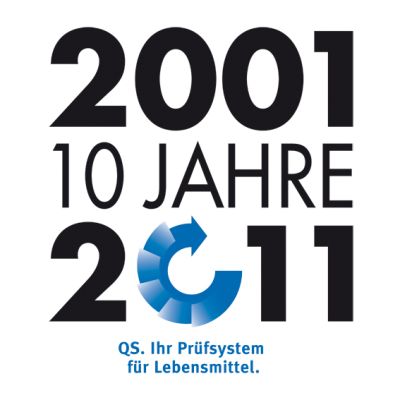
Ten years of QS
Founded on 13th October 2001, the QS scheme celebrates its tenth anniversary in October 2011.This will be celebrated at the place of foundation on the Anuga. Markus Mosa, chairman of the shareholders meeting on the anniversary: Since the 13th October 2001, quality assurance within food industry has changed for the better. The foundation of QS sets a clear signal of agriculture, industry and food retail to become active together. Within the last ten years a comprehensive inspection system for fresh meat and sausage products as well as or fruit and vegetables emerged, which enjoys huge recognition among experts.
2001
2002
2003
2004
2005
2006
2007
2009
2010
2011
We use cookies on this website. These are used to personalise content and advertisements. They also allow us to offer social media features and analyse traffic to our website. The way you use our website is shared with our advertising, social media and analytics partners. For more information on which cookies are used, please see our privacy policy.
Matomo: We employ Matomo, to better understand how visitors interact with our website.
OpenStreetMap: Display of an interactive roadmap provided by OpenStreetMap.

